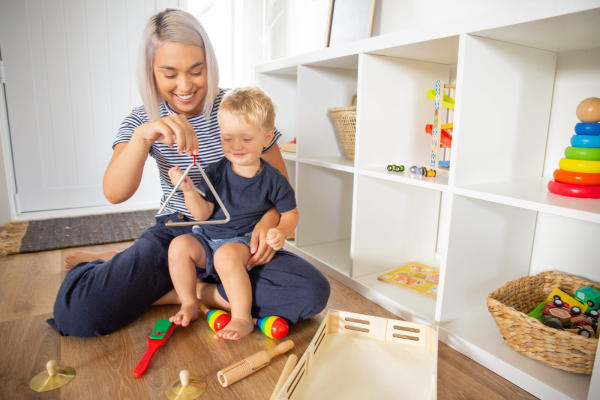Preschool is a wonderful age to begin Montessori. This environment teaches children to take charge of their learning by focusing on a single activity for an hour at a time. They are exposed to amazing knowledge and can independently choose activities they enjoy. Children are encouraged to choose the tasks that best fit their developmental stage and interests. It is also a great way to introduce math and other basic concepts to your child.

This learning style is suitable for a wide range of personalities and temperaments. Young children may not be able to make the decision to participate in group activities or may need to be directed by an adult. Those who have difficulty choosing will find it difficult to transition to this method of education. However, older children who develop independence and self-confidence will benefit from the program. They will also develop a sense of independence and be better able to choose for themselves.
As they move through the program, they will gradually gain more independence and confidence. While they are still able to follow their interests, they are able to make decisions on their own. During the third year, children are able to move from simple materials to multi-sentence stories. They will begin to develop the ability to write in cursive. By the end of their first year, they will be able to read books of the second-grade level. They will also begin to sound out individual letters.
When is the best time to start? This depends on your child’s needs and the level of experience you want your child to have. As a general rule, the younger a child is, the younger he or she can begin. It is important to keep in mind that infancy is an extremely critical developmental period for the development of learning and growth. You can choose to introduce Montessori to your child when he or she is ready.
Age is crucial for the development of your child. Early childhood is a sensitive time when children are able to hear and understand individual sounds in words and letters. The young child’s mind is developing at this time. Therefore, Montessori programs should be chosen accordingly. The age range of the program varies from two to six. This is why it is important to choose the right program based on the child’s personality and developmental goals.
Typically, the best age to start Montessori is between four and five years old. In the primary stage, children are working on foundational skills such as math and reading. In the lower stages, they are working on advanced skills such as executive functions and language. Then, they are ready for the next step: elementary school. If you decide to continue with the Montessori method, you will be able to follow it throughout your child’s life.

The Montessori method can be successful even if your child is in the upper elementary phase. In general, children are more mobile in their early years, but they should still be given the freedom to explore the home. They should be allowed to explore the whole house and be independent. While this is a good age to start Montessori, some schools will only accept children in the lower elementary. When the student is ready, the older children are the best age to start it.
The Montessori method works best for children who are independent, self-directed, and like to work alone. They are usually happy and cooperative, and they are more likely to learn in small groups. They can also benefit from the Montessori environment if they have specific needs. And if they have special needs, the Montessori environment can be a good option. Many students in the upper grades are able to work together in a community.
The most important question to ask is: when should your child start Montessori? There are many factors to consider. Your child needs to be healthy and well-developed, and the transition from home to school can be a difficult one. In most cases, the transition to school can be traumatic for both parents and children. In contrast to this, Montessori is a highly structured environment that promotes self-directed learning. This type of school environment encourages independence, which is a great benefit for the child.

